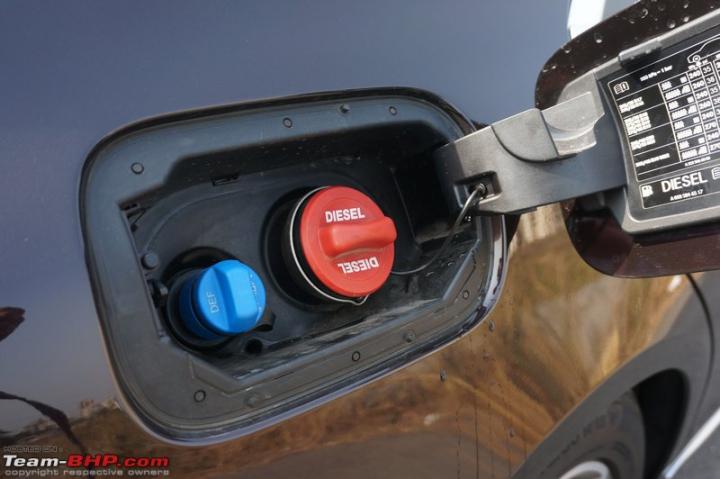News
Real drive emissions norms: A necessary evil for the greater good?
Cars that could be axed include the Nissan Kicks, the petrol variant of the Toyota Innova Crysta, the already-missing-from-the-market Alturas G4, and interestingly, the Skoda Octavia and Superb.
BHPian kung_foo_fanta recently shared this with other enthusiasts.
According to a recent article on Autocar India, a whole host of passenger vehicles (some of) which have so far been in high demand, are due to be taken off the market in April 2023.
These include the Nissan Kicks, the petrol variant of the Toyota Innova Crysta, the already-missing-from-the-market Alturas G4, and interestingly, the Skoda Octavia and Superb.
The carmakers are getting ready to stop the sales of such models citing reasons such as already low sales which negate the benefit of investing time and effort into bettering the emissions of their engines.
Most diesel engined cars which moved to the Selective Catalytic Reduction (SCR) method of emissions control (read as AdBlue, AdBlue, AdBleh) are considered to be safe from the upcoming emissions norm implementation.
Here's what BHPian Jeroen had to say on the matter:
Emission norms are to protect each and every citizen, irrespective whether you are a car owner or driver. It is a small but necessary step to create a better environment for all. I am not so sure why that would be considered evil?
Jeroen
Here's what BHPian reppy had to say on the matter:
RDE norms will bring in real world emissions testing to engines, rather than laboratory scale, non ideal testing setups where engines can "cheat" the system. This will seperate the good, the bad and the ugly. It's a welcome move, and not an evil one for sure!
Here's what BHPian fhdowntheline had to say on the matter:
I think most of the pollution in urban India is being caused due to construction dust. If anything, the average fuel efficiency of American cars is likely to be lower because of their size and engine capacity, resulting in more emissions per unit area of activity (movement of vehicles). But there is definitely less of construction dust in the US. You will almost never see hordes of multi storey apartment complexes being frantically built in the downtown of mid-sized or even large American cities. Most people in general prefer to stay in suburbs in single storey houses. It also helps that USA is much less densely populated and is much bigger in size. As I indicated in another thread, it is difficult to find pure countryside in India unless you travel to remote places. There is just so much construction and urbanization going on.
Here's what BHPian COMMUTER had to say on the matter:
Those who frame these rules put their head in to the ground and avoid acknowledging the fact that they live in the same world as china which emits more than a third of the world's pollution and ships goods with ships using the crudest bunker fuel which spew a host of other harmful gases like so2, nox,etc. in addition to co2.
Those who are really against pollution should start with the ships and airplanes and push for indigenous production. Those who call for more and more imports from China are either greedy for instant penny or just a plant of China.
Here's what BHPian vinya_jag had to say on the matter:
I still cannot fathom Škoda’s idea of keeping Kodiaq and doing away with Octavia and Superb.
Tweaking the engine with expensive components means lesser margins on a Sedan? Should I believe this?
If Octavia could give 18Kmpl and Kodiaq could return 14, a trip of 500 Kms, Octavia would consume 28Liters while the Kodiaq, 36.
Is Skoda trying to prove burning 36liters of fuel that puts out a little less of some gas is less polluting, compared to 28?
If car makers really understood what problem we were trying to solve here, they should have kept the Octavia and Superb, shouldn’t they?
Read BHPian comments for more insights and information.
- Tags:
- Indian
- Member Content
- Emissions
- BS6
- BS6.2












 (1).jpg)






